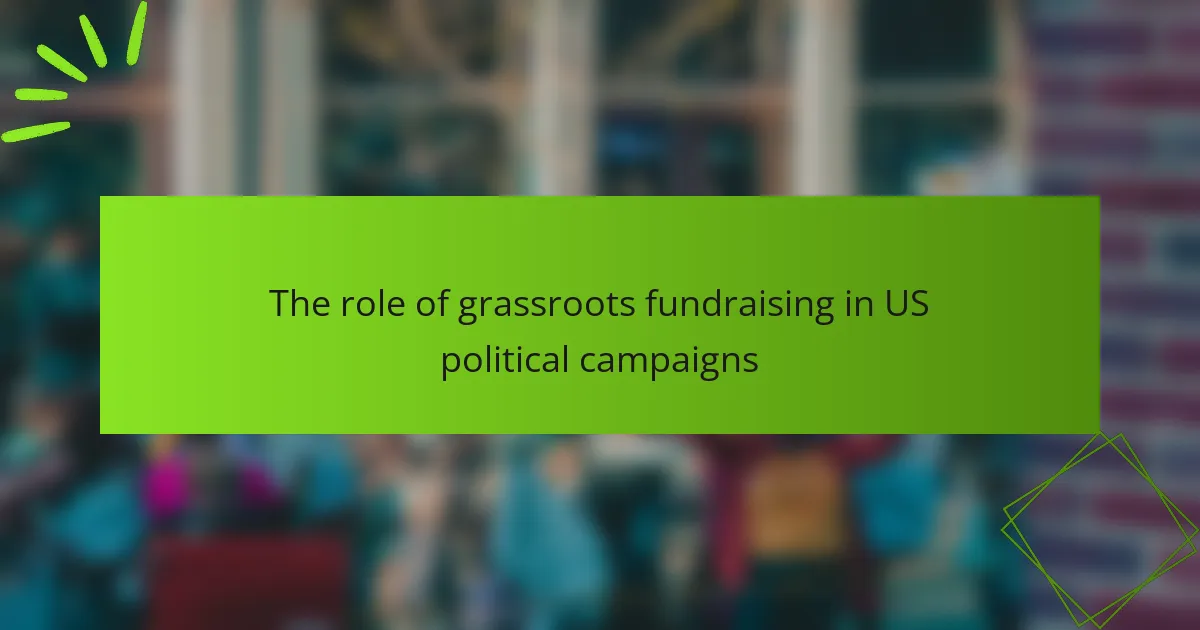Grassroots fundraising is a significant component of political campaigns in the United States, characterized by small donations from a large number of supporters. This funding model allows candidates to cultivate broad financial backing, reflecting their popularity and community involvement. The 2020 election cycle highlighted this trend, with over 50% of donations to Democratic candidates originating […]
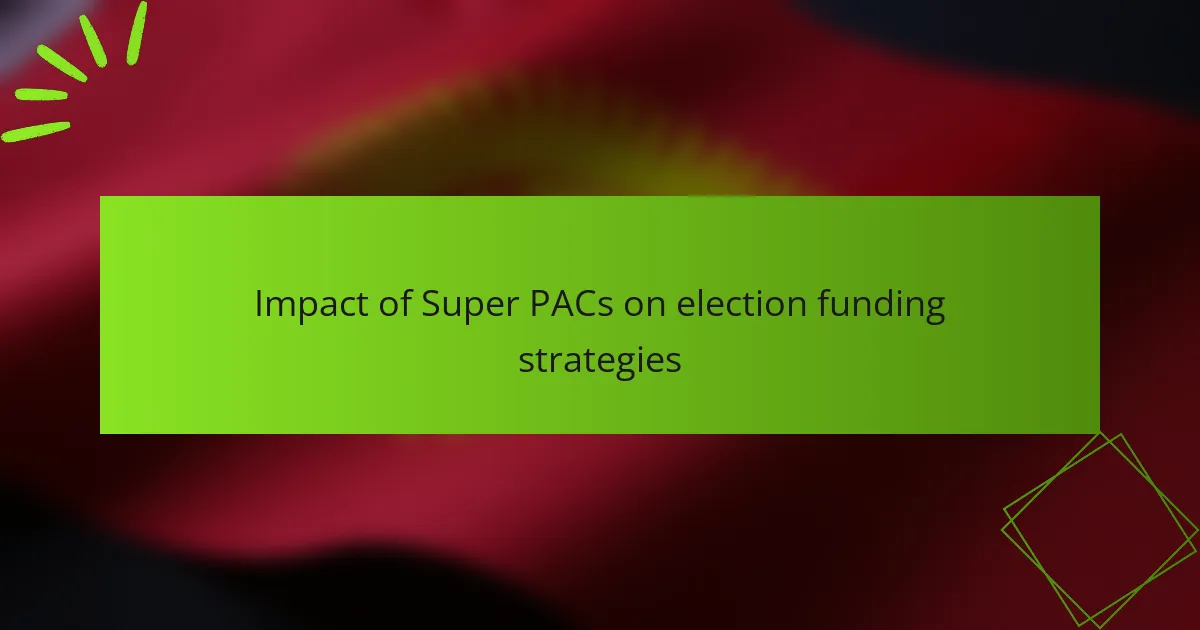
Impact of Super PACs on election funding strategies
Super PACs, or Political Action Committees, are organizations that can raise and spend unlimited funds to influence political candidates without direct coordination with their campaigns. Established after the 2010 Supreme Court ruling in Citizens United v. FEC, Super PACs play a crucial role in election funding strategies, significantly impacting voter perceptions through extensive advertising and […]
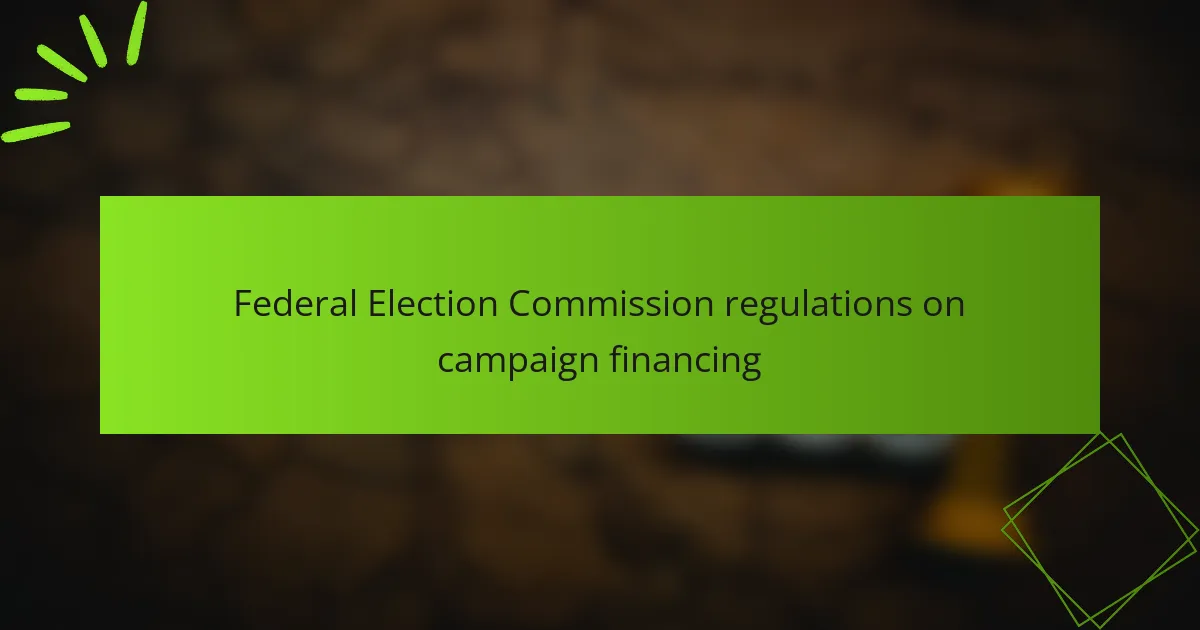
Federal Election Commission regulations on campaign financing
Federal Election Commission (FEC) regulations govern campaign financing in the United States by establishing limits on contributions to candidates and political parties. Individuals can donate up to $2,900 per election to a candidate, while political action committees (PACs) may contribute up to $5,000. The FEC mandates transparency through financial disclosures of campaign contributions and expenditures, […]

Transparency requirements for campaign finance disclosures
Campaign finance disclosures are essential for ensuring transparency in political funding, requiring organizations and candidates to report contributions and expenditures. Federal law mandates that candidates file regular reports with the Federal Election Commission (FEC), detailing contributors’ names and addresses for donations exceeding $200, along with the amounts and dates of these contributions. Additionally, expenditures must […]

Historical trends in election funding and their implications
The article examines historical trends in election funding and their implications for political dynamics. It highlights the evolution of campaign expenditures from individual donations in the early 20th century to the rise of political action committees (PACs) and Super PACs, particularly after the Citizens United v. FEC decision in 2010. The analysis reveals how increased […]
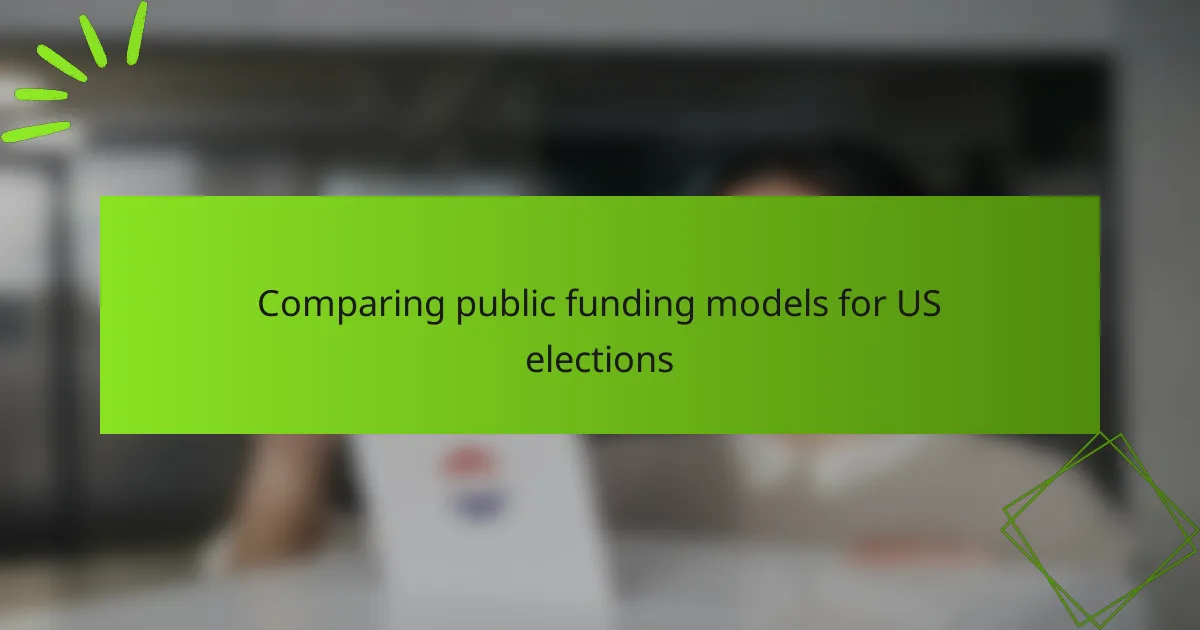
Comparing public funding models for US elections
Public funding models for US elections play a crucial role in shaping campaign dynamics and voter engagement. Key models include the Federal Election Commission (FEC) matching funds program, state-level public financing, and the voucher system, each designed to encourage grassroots support and limit the influence of large donors. The evolution of public funding began with […]
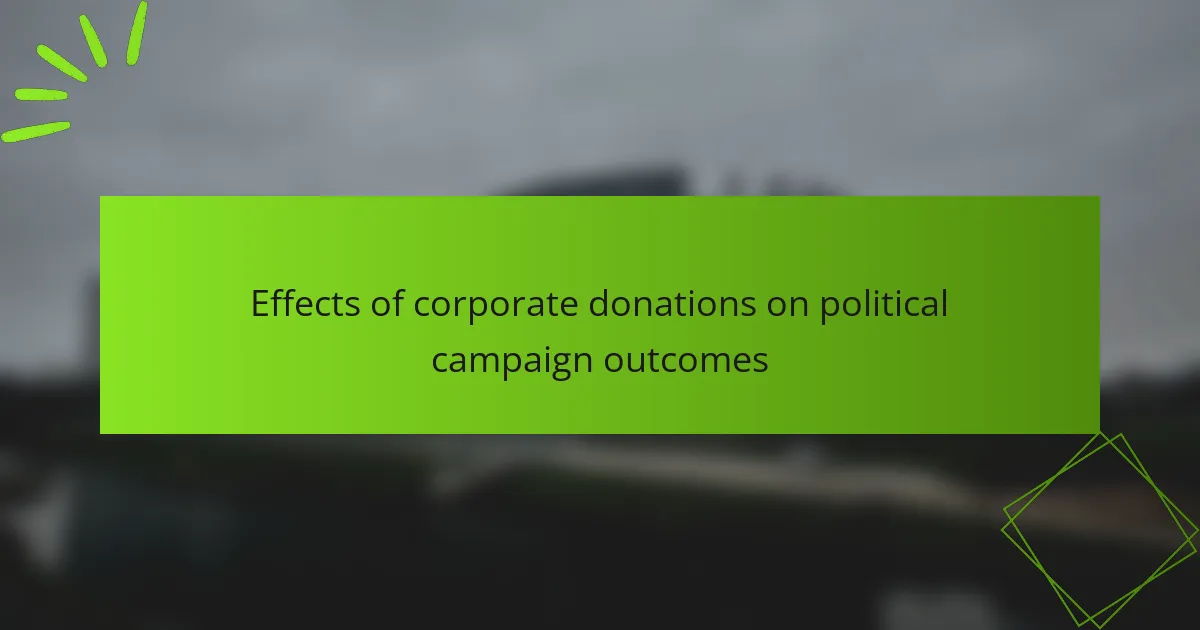
Effects of corporate donations on political campaign outcomes
Corporate donations are financial contributions made by businesses to political campaigns, significantly impacting election outcomes. These donations provide candidates with critical funding for advertising, outreach, and staffing, enhancing their visibility and competitiveness. Research indicates that candidates receiving substantial corporate contributions often secure more votes and may prioritize corporate interests over their constituents, leading to potential […]

State-level variations in political campaign contributions
State-level variations in political campaign contributions reflect the differences in funding amounts and sources across various states, influenced by state-specific regulations, economic conditions, and political culture. Larger states, such as California and Texas, typically experience higher contributions due to their population and economic resources, while smaller states face limitations from stricter campaign finance laws. The […]
